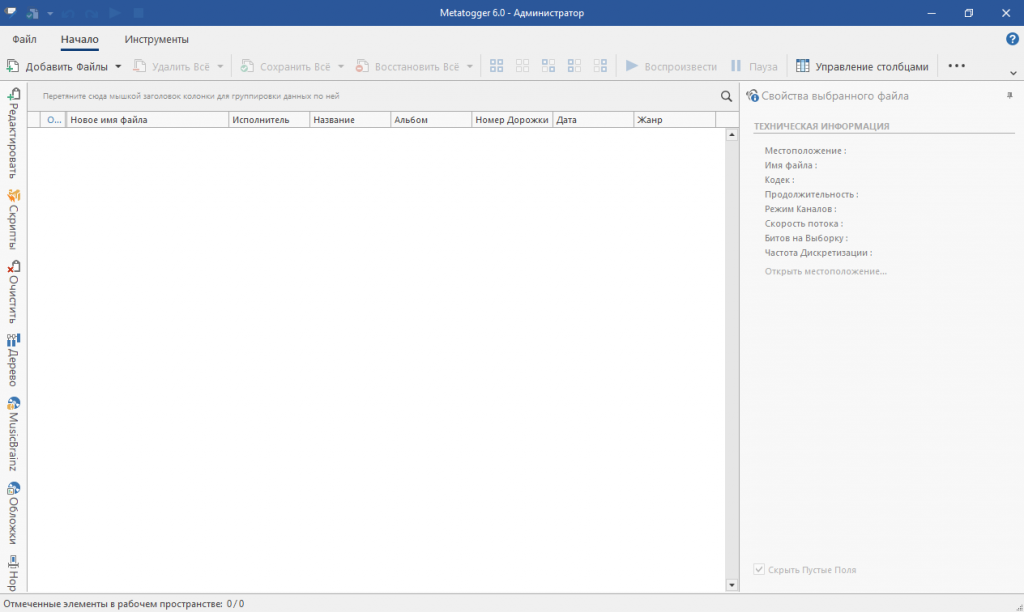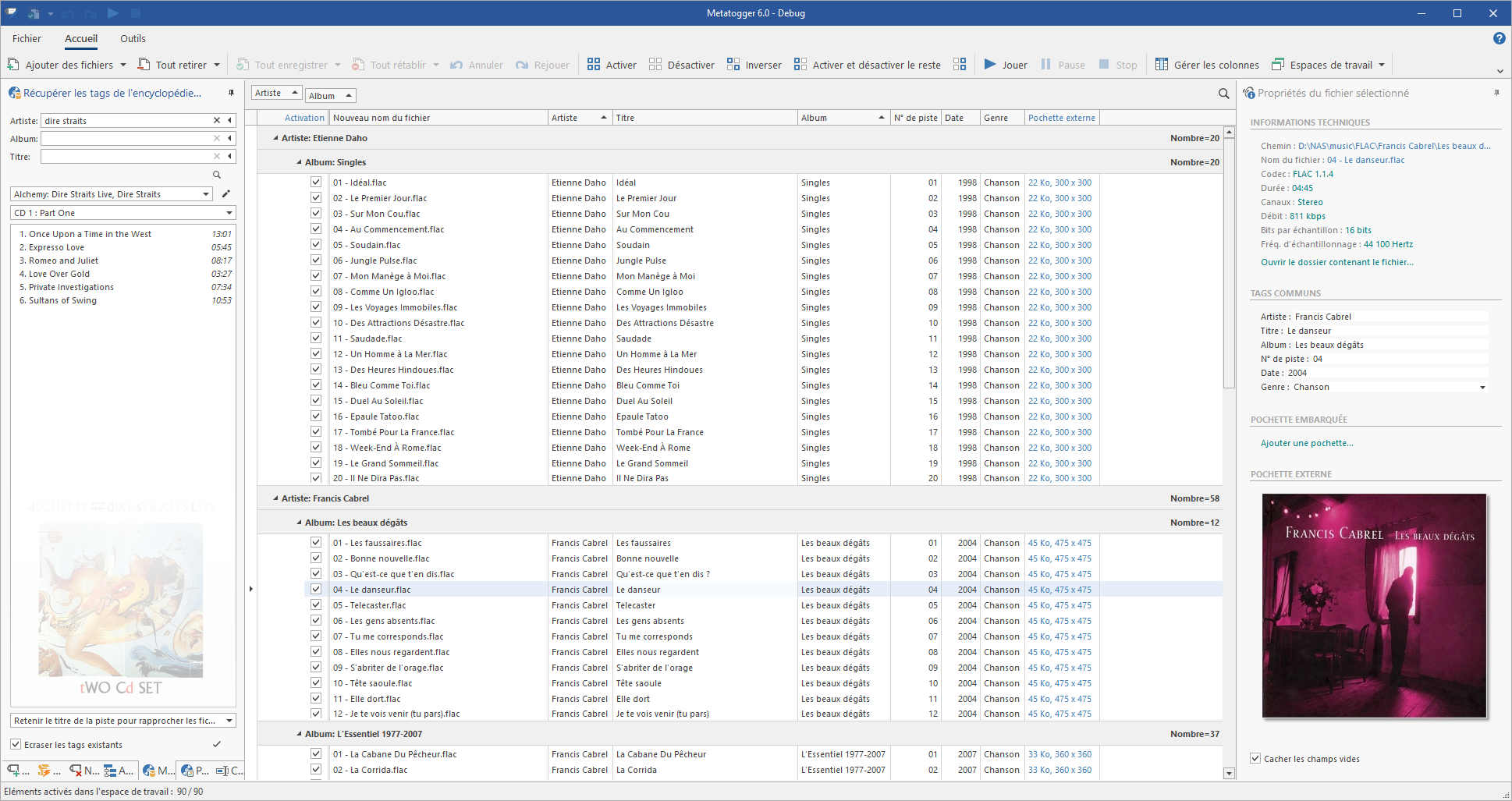
Even if you have a file with no name and no tags, the software can retrieve its title and the artist's name. It is definitely worth mentioning that MetatOGGer is capable of identifying files by their acoustic fingerprints. A more interesting method involves searching for information in a database, which you can download and update at any time. For example, you can edit an IronPython script or you can assign tags, using information from the file's name. There are many other ways of tagging audio files. All you have to do is click a button, on one of the program's ribbon menus and the lyrics will be assigned right away. It is also possible to retrieve lyrics for one or more audio files. You may create and save different sets of common and uncommon tags, on the right side of the window, select them in a drop menu and apply them when you need to. It is also possible to apply user defined tags, on selected files. Once you load your files, you can select them and edit a few details, like artist, title, album, date or genre, on the right side of the interface, where you can also assign external or embedded cover arts. Like many other applications, MetatOGGer allows you to import specific audio files or entire folders, with or without their sub-folders. Moreover, its system requirements will not present a challenge, even for outdated machines. You can download and install the application in less than a minute and run it right away, without installing any prerequisite tools. MetatOGGer is distributed as a freeware application and it can be used on Windows XP or any later edition.

Instead of filling in countless input fields, you can just click a few buttons and retrieve the information you need from the Internet. MetatOGGer can help you tag multiple audio files in a single run. If your audio files don't have any tags, the player will categorize them as unknown.

Advanced media players use tag information to sort your audio files according to their artists, albums and so on.


 0 kommentar(er)
0 kommentar(er)
